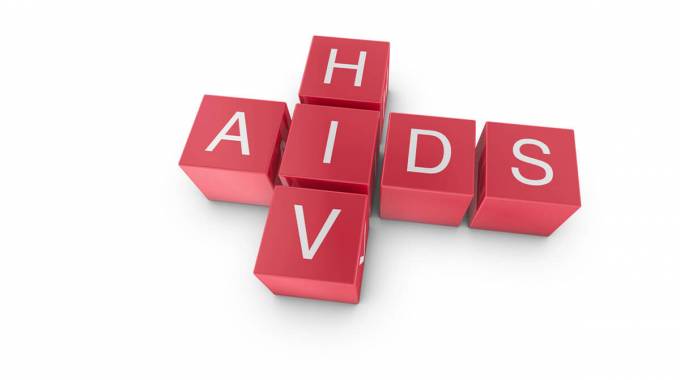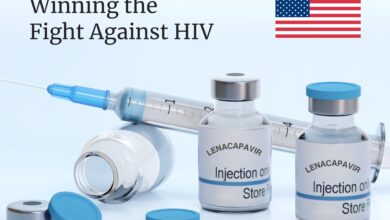HIV/AIDS REARS ITS UGLY HEAD AGAIN
23k new cases recorded annually | Concern over morning-after pills demand

WHEN Sharon and Isaac met at a local tertiary institution back in 2018, they instantly hit it off.
The couple was inseparable. Their “colourful” relationship became the talk of campus.
However, things turned sour earlier this year, when the two were about to customarily get married.
After setting marriage dates, Sharon’s aunt called for an important meeting with the couple, which was meant to let the cat out of the bag.
Apparently, for all the years they had been dating, Sharon knew she was HIV (human immunodeficiency virus) positive, but never disclosed her status to Isaac.
“I felt my world crumbling and blamed myself for being reckless by trusting her with my health, without caring to get tested,” regrets Isaac.
Being her first relationship, Sharon was afraid of disclosing her status. She believed Isaac would not only abandon her, but also spread the news about her status to their colleagues. She had tested positive in 2010, at the age of 10, after falling ill for some time.
Since then, she has been on antiretroviral therapy.
Later, Isaac also tested positive for HIV, and the two have since joined a peer group, where they are learning more about living positively with the virus.
“I was born positive, but I did not have the courage to disclose this. My fear was losing him but deep down, the secret was eating me up,” narrated Sharon.
“The first time we got intimate, I was unsure of what to do or say, and I have not forgiven myself for what I did, although Isaac has come to terms with everything and we have since reconciled. However, we cancelled the marriage.”
Their case is just a microcosm of what is happening across the country.
According to the National Aids Council (NAC), the population segments that are mainly affected are adolescent girls and young women, while age mixing is proving to be a challenge. About 1,3 million people are living with HIV, out of which 1,2 million are adults.
The national HIV prevalence rate stands at 11,8 percent (15 to 49 age group).
“New cases of HIV are currently at 23 000 in Zimbabwe annually while mortality stands at 20 000 annually. These figures show that the problem is still high in the country,” said NAC chief executive officer, Dr Bernard Madzima.
“Young men catch up later. Key populations that include sex workers, MSM (men who have sex with men) and transgender risk exposure to sex with infected partners.”
Most people living with HIV, especially young adults, are finding it hard to disclose their status for one reason or the other.
“Stigma and discrimination are a major factor in failure to access services by young people,” added Dr Madzima.
But there are unfortunate cases of individuals who are deliberately infecting others while some do not know where they stand with regards to their HIV status.
It gets worse as some daring commercial sex workers are also in the habit of charging their clients higher fees for unprotected sex.
These and many other issues are set to take centre stage on December 1 as the world observes the annual World Aids Day.
Scramble for morning-after pill
Health experts are concerned about an unprecedented surge in the demand for morning-after pills and sexually transmitted infection (STI) medication.
The morning-after pill is a type of emergency birth control (contraception) used to prevent pregnancy for women after having unprotected intercourse or whose birth control method has failed.
The pill(s) cost around US$5 or equivalent in most pharmacies and have been flying off the shelves.
Demand is said to be shooting through the roof during weekends and schooling days.
A leading pharmacy in central Harare shockingly revealed that it receives more than 30 customers on peak days, particularly on Saturdays.
“Most of our clients are young adults and the demand for both the morning-after pill and STI medication has significantly increased, especially this year,” said Belinda Simango, a local pharmacist.
However, morning-after pills are only designed for emergencies and should not be frequently repeated.
“We are not allowed to sell the pills to the same person within a short space of time. However, the young ladies have mastered the art of dodging our detection systems through lying their names or using different pharmacies all the time,” revealed a Greenwood pharmacist.
Some dangerously “enterprising” students are also making a killing by illegally sourcing and selling morning-after pills and antibiotics to their colleagues.
The medication is either sourced from across borders or local distributors.
In South Africa, morning-after pills can be accessed free of charge from public health institutions.
A couple of months back, the Zimbabwe Revenue Authority (ZIMRA) busted a trio trying to smuggle six boxes of morning-after pills through the Beitbridge Border Post.
Complacency/Risk
Doctor Ebison Chinherende said frequent use of morning-after pills causes severe hormonal disturbances in young women.
“It may cause pregnancy-related complications while in less serious cases, it can cause heavy menstrual bleeding or non-uniform menstruation patterns,” warned Dr Chinherende.
A high demand for morning-after pills and STI medication is an indication of unprotected sexual intercourse.
Head of the Aids and Tuberculosis Unit in the Ministry of Health and Child Care Dr Owen Mugurungi said the reckless behaviour among young adults is due to ignorance.
The younger generation appears to be more worried about falling pregnant compared to HIV or STIs.
“On a medical perspective, for anyone taking their medication daily, their viral load is more likely to be suppressed to undetectable levels and the risk of transmission is low. This, however, does not mean one is safe. Others even default their medication to please their partners and the effects will not be pleasing,” said Dr Mugurungi.
NAC board member representing persons living with HIV Tendai Westerhof is concerned.
“People have lost guard. Taking the morning-after pill and STI medication means people are now more focused on something else other than HIV and that may be a potential disaster for us as a nation,” said Westerhof.
“We are not even sure if the pills that are being sold at campuses and on the streets are genuine.”
The absence of a law that criminalises failure to disclose one’s status has not helped matters as well. “Opening up comes with a lot of stigma and discrimination, hence it is difficult for young adults especially as they look forward to settling down one day. It can also prejudice them in other aspects of their lives.
“What we need to do as a nation is encourage counselling for everyone. Parents should open up, tell children about their statuses so that they get the necessary support from a young age.
“Living with HIV is not simple, that is why some even become suicidal when they discover their status. A lot needs to be done for these kids to be able to cope. We need to bring sexual and reproductive health services to the community, especially high schools and tertiary institutions.”
HIV/AIDS advocate Tariro Kutadza reckons stigma and discrimination are still rife at all levels.
“We have a group of children who were born positive; they have more questions than answers about their lives and so they find it tough to disclose. The fact that our policies also do not allow us to disclose a child’s status also complicates things, coupled with social constructs. Everything becomes a secret,” she said.
Remedy
Kutadza notes the need for regular HIV/AIDS tests and equally encourages young adults to join support groups where they can have peer talks around the virus.
Advocacy groups, she added, should emphasise on abstinence.
Likewise, HIV/AIDS awareness campaigns, particularly in the public media, need to be revived. It is now rare to come across an advertisement that promotes abstinence, the use of protection or the need for testing.
“We are putting more energy in the wrong subjects and now young adults feel sex is normal; others are succumbing to peer pressure,” notes Kutadza.
A study done in Harare shows that 63 percent of HIV positive young people are at risk of depression. Common disorders in people living with HIV include depression, anxiety and substance abuse.
“Drug abuse has also become a huge challenge because there is a thin line between drugs and sexuality, which is why we feel there is need for punitive measures in fighting things like Vuzu parties.”
She added that people should embrace prevention by taking the long-acting injectable cabotegravir (CAB-LA). Zimbabwe earlier this year became the first African country to approve the use of CAB-LA as pre-exposure prophylaxis (PrEP) for HIV prevention.
But with advanced medication, it is argued that those who religiously take their doses may eventually have their viral load suppressed to a level that it becomes undetectable.
“This is very sensitive and if we are not careful, it may reverse all our gains. People need to understand that viral load suppression is temporary and dependent on various factors that include loyalty to medication. This makes more people vulnerable, so we need robust viral load programmes and walk-in viral load detection centres,” said Kutadza.
The Government has since partnered with Zvandiri, an HIV organisation that deals with young adults, in a programme targeting HIV/AIDS hotspots.
The programme will help with disclosure support, HIV diagnosis and treatment adherence, TB prevention, mental health support and links to education and social welfare services.
According to the NAC, Bulilima District has the highest prevalence rate of 22,8 percent, with Matabeleland South also accounting for the highest provincial rate at 19,58 percent.
Locals in the area frequent South Africa and Botswana, which top the highest HIV infection rate in Africa.
Sunday Mail




